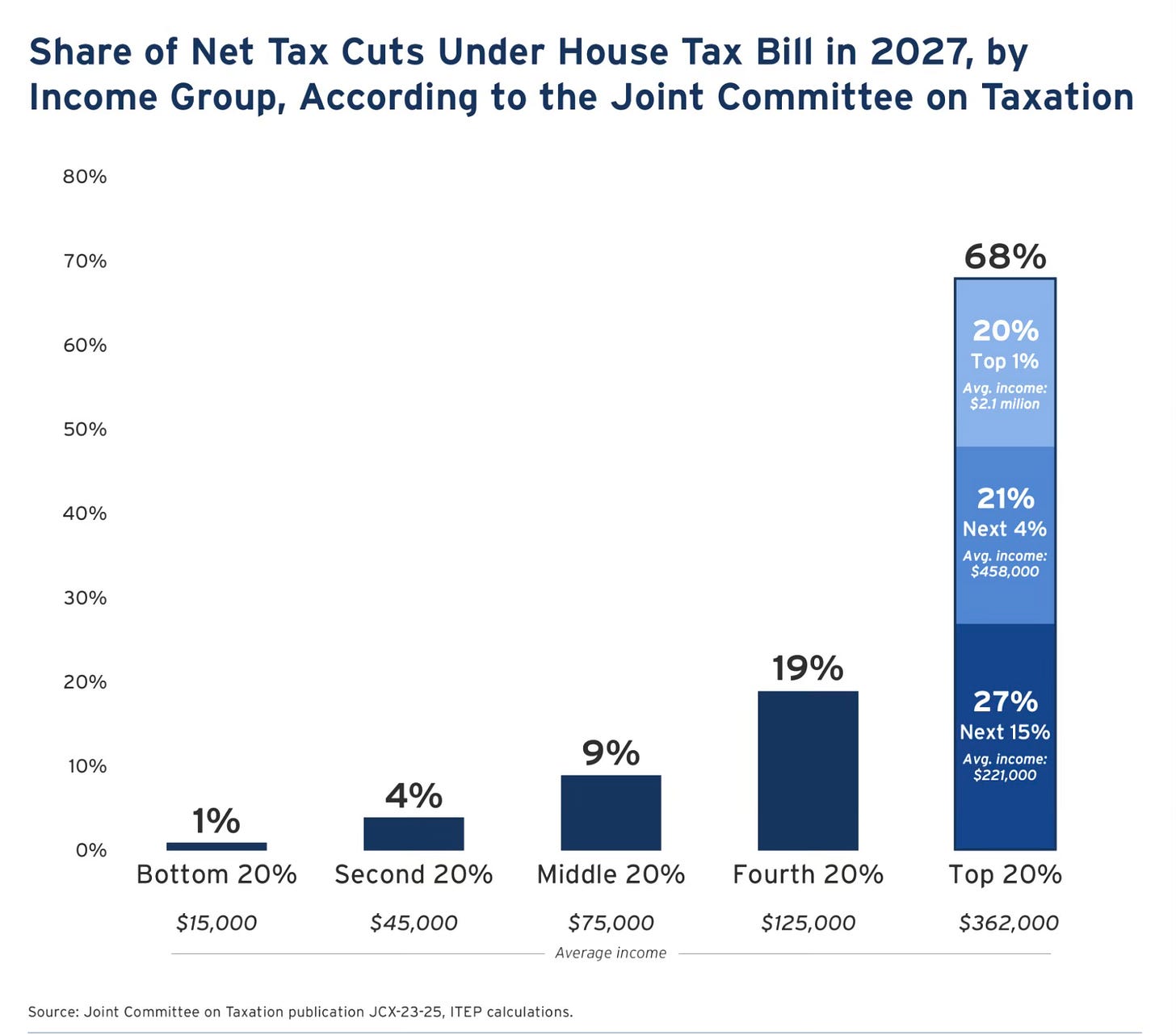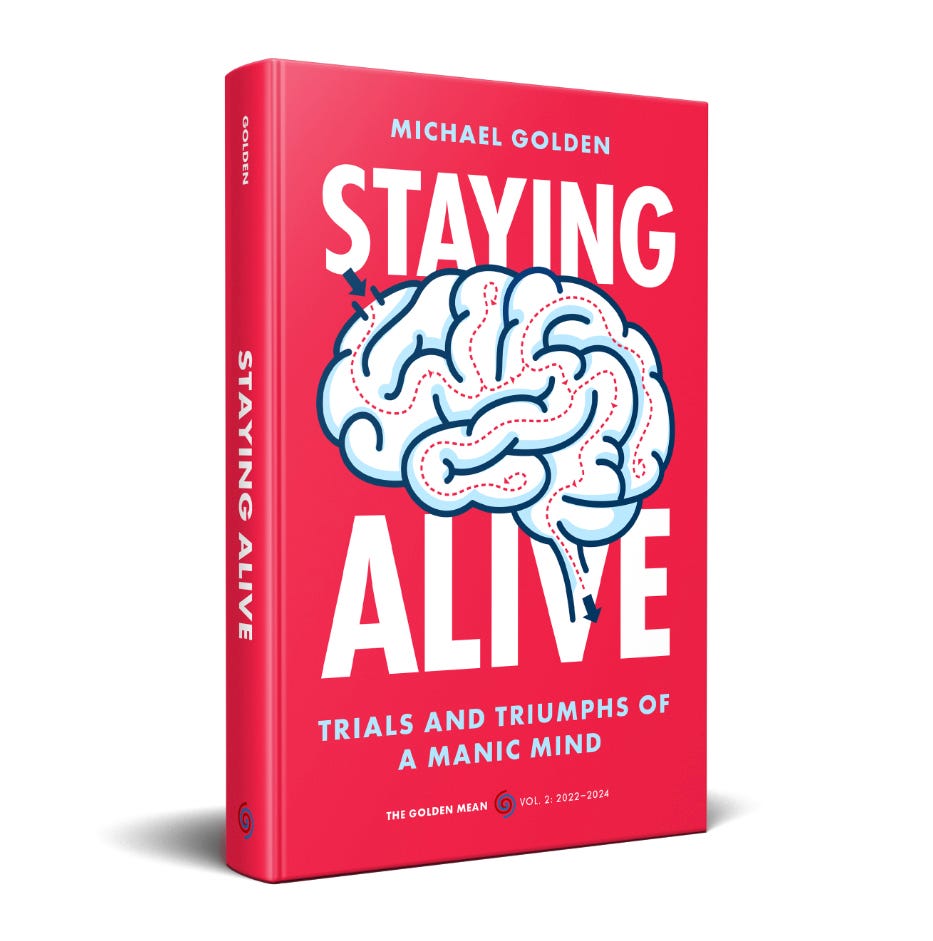The Big Bubonic Bill
When Americans learn the truth about the proposed tax bill, the verdict isn't pretty.
When it comes to politics, where you stand usually depends on where you sit. Americans support candidates, parties and policies based on how they will affect their lives, or in accordance with their overall values.
But problems often arise in a democracy when political marketing or the limitations of media can give people the wrong idea about what a law will really do.
The marketer who came up with “The Big Beautiful Bill” (which is the official name of the proposed legislation) was very shrewd. It is likely the invention of President Trump himself; an example of branding that’s brilliant in its positive simplicity.
But in terms of how it’s going to really impact most Americans, the BBB is deceptively dangerous. A more appropriate title for it would be: The Big Bubonic Bill. Symptoms of the notorious Plague include swelling and inflammation, caused by infectious hidden fleas.
In other words, you can’t see the massive bloat and damage that’s coming because the facts driving the impending result are being obscured — or just paid little attention to. Of course, this is part and parcel of politics — but ultimately we all still have the power to learn the facts and push back. If we so choose.
For Americans who are on the very highest rung of the income scale and care solely about the tax relief in the BBB — and are unconcerned with increasing national debt — the following information will be irrelevant. And that’s okay. Representative democracy. One person, one vote.
But for anyone who has additional factors on their calculus, knowing the details of the bill matter. The problem is that most don’t: A Washington Post poll from earlier this month showed that 40 percent had heard “a little” about the BBB, and 26 percent had heard “nothing at all.” But when Americans did learn the details, support for the bill dropped like a bunker-buster. We’ll get to that specific data, but first, the realities:
• The BBB slashes both SNAP assistance and Medicaid, the latter of which will result in 11 million Americans losing their health insurance. But it gets worse: The nonpartisan Congressional Budget Office (CBO) explains that this number increases to 16 million once the GOP puts an end to expanded tax credits for the Affordable are Act.
Medicaid is widely misunderstood and demonized. But several Republican Senators know its critical value — especially to rural hospitals — and reject the cuts. Senator Josh Hawley (R-MO) made a robust public argument in The New York Times, calling out the “Wall Street” wing of his party:
“This wing wants to build our big, beautiful bill around slashing health insurance for the working poor. But that argument is both morally wrong and politically suicidal.
“If Congress cuts funding for Medicaid benefits, Missouri workers and their children will lose their health care. And hospitals will close. It’s that simple. And that pattern will be replicated in states across the country.”
• The cuts to health insurance and aid for the working poor — plus a ton of new debt (see below) — will fund $3.8 trillion in tax reductions for America’s wealthiest. The top .1 percent will receive an average benefit of $120,00 according to the Tax Policy Center.
Much has been made of the Trump administration’s laudable goal of eliminating the taxes workers pay on tips and overtime. But relative to the gifts that will be given to the highest tax brackets, it’s equivalent to political subterfuge. As political economists Jacob Hacker and Patrick Sullivan published earlier this week:
“Take two of these mystery provisions: an expanded and permanent deduction for 'pass through’ business income and a higher (and also permanently indexed) threshold for the estate tax. Together, those two items would cost more than $1 trillion — over six times the combined cost of the two 'no tax’ provisions that Mr. Vance highlighted.”
• The House-passed version of the BBB would add $2.4 trillion in deficits over the next decade, according to the nonpartisan Congressional Budget Office:
“That change stems from a reduction in revenues of $3.7 trillion and a reduction in outlays of $1.3 trillion over the 2025–2034 period.”

There’s a lot more. I’d say the best place to read about it is in the very accessible report put together by Hacker and Sullivan. Right after its release, they did a survey whereupon Americans were informed about the relevant planks of the bill — and people found it overwhelmingly bubonic. Including Republicans. The upshot:
“When shown the combined effects, the ratio of opposition to support increased to more than 7 to 1, and only 11% of Americans supported the bill. Among Republicans, the difference across groups was even larger: support and opposition flipped between the control group and the combined treatment group, from nearly 3 to 1 support to nearly 3 to 1 opposition. Our results confirm that the One Big Beautiful Bill Act is broadly unpopular.”
Now, at the eleventh hour, Republicans in the Senate have been trying to do some slight of hand to satisfy the holdouts — but the tactics have been disallowed by the Senate parliamentarian. They threatened to fire her. However, late Thursday, Senators came up with a plan to transfer $41 billion in anti-hunger aid onto the states. This time it was permitted.
Yesterday, at an event at the White House, President Trump called the GOP Senators “grandstanders” who’ve been trying to make changes to the bill. He said: “They’re not good people.” But the cruel numbers speak for themselves; it’s the only reason any Republican would dare stand up to the party that Trump has transformed.
TGM readers have pointed out that I rarely write about domestic politics anymore. I find it almost too ridiculous to explain through the written word. But some things I find just so plainly weighted against working people that remaining silent feels tantamount to an expression of approval. I thank you for your indulgence.
Americans elected this president and this GOP-controlled House and Senate. They can do whatever they want for — or to — our citizenry. But how they vote on the Big Bubonic Bill will be part of their record.
Forever.








Please shout this from the mountain tops, Michael.